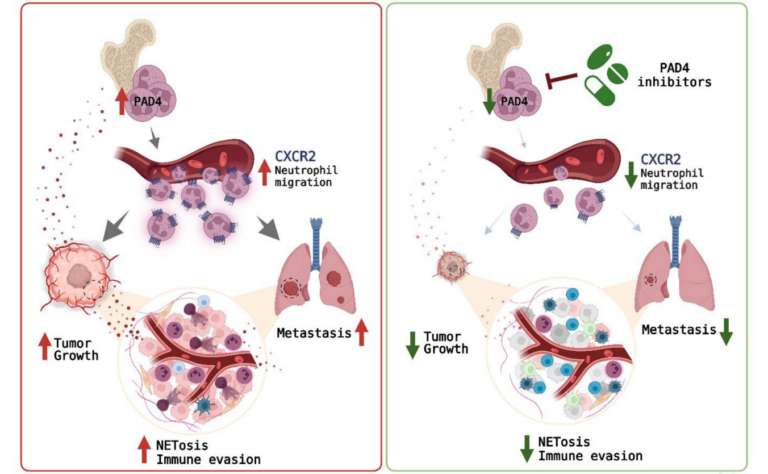“Overall, our study provides novel insight into how reproductive aging impacts the murine ovarian proteome and ECM.”
BUFFALO, NY- October 31, 2023 – A new priority research paper was published on the cover of Aging (listed by MEDLINE/PubMed as “Aging (Albany NY)” and “Aging-US” by Web of Science) Volume 15, Issue 20, entitled, “Proteomic quantification of native and ECM-enriched mouse ovaries reveals an age-dependent fibro-inflammatory signature.”
The ovarian microenvironment becomes fibrotic and stiff with age, in part due to increased collagen and decreased hyaluronan. However, the extracellular matrix (ECM) is a complex network of hundreds of proteins, glycoproteins, and glycans which are highly tissue specific and undergo pronounced changes with age. In this new study, researchers Shweta S. Dipali, Christina D. King, Jacob P. Rose, Joanna E. Burdette, Judith Campisi, Birgit Schilling, and Francesca E. Duncan from Northwestern University’s Feinberg School of Medicine, the Buck Institute for Research on Aging and the University of Illinois at Chicago used label-free quantitative proteomic methods to define comprehensive, age-dependent changes in the murine ovarian proteome and ECM in an unbiased manner.
“To obtain an unbiased and comprehensive profile of age-associated alterations to the murine ovarian proteome and ECM, we used a label-free quantitative proteomic methodology.”
The researchers validated conditions to enrich for the ECM prior to proteomic analysis. Following analysis by data-independent acquisition (DIA) and quantitative data processing, they observed that both native and ECM-enriched ovaries clustered separately based on age, indicating distinct age-dependent proteomic signatures. The team identified a total of 4,721 proteins from both native and ECM-enriched ovaries, of which 383 proteins were significantly altered with advanced age, including 58 ECM proteins.
Several ECM proteins upregulated with age have been associated with fibrosis in other organs, but to date their roles in ovarian fibrosis are unknown. Pathways regulating DNA metabolism and translation were downregulated with age, whereas pathways involved in ECM remodeling and immune response were upregulated. Interestingly, immune-related pathways were upregulated with age even in ECM-enriched ovaries, suggesting a novel interplay between the ECM and the immune system.
Moreover, the researchers identified putative markers of unique immune cell populations present in the ovary with age. These findings provide evidence from a proteomic perspective that the aging ovary provides a fibroinflammatory milieu, and their study suggests target proteins which may drive these age-associated phenotypes for future investigation.
“To our knowledge, this is the first study to utilize unbiased proteomic approaches to investigate the effect of reproductive aging on the murine ovarian proteome and matrisome.”
Read the full study: DOI: https://doi.org/10.18632/aging.205190
Corresponding Authors: Francesca E. Duncan, Birgit Schilling – f-duncan@northwestern.edu, bschilling@buckinstitute.org
Keywords: reproductive aging, ovary, proteomics, extracellular matrix, data-independent acquisition
Sign up for free Altmetric alerts about this article: https://aging.altmetric.com/details/email_updates?id=10.18632%2Faging.205190
About Aging: Launched in 2009, Aging (Aging-US) publishes papers of general interest and biological significance in all fields of aging research and age-related diseases, including cancer—and now, with a special focus on COVID-19 vulnerability as an age-dependent syndrome. Topics in Aging go beyond traditional gerontology, including, but not limited to, cellular and molecular biology, human age-related diseases, pathology in model organisms, signal transduction pathways (e.g., p53, sirtuins, and PI-3K/AKT/mTOR, among others), and approaches to modulating these signaling pathways.
Please visit our website at www.Aging-US.com and connect with us:
- SoundCloud
- X, formerly known as Twitter
- YouTube
- LabTube
Click here to subscribe to Aging publication updates.
For media inquiries, please contact media@impactjournals.com.

